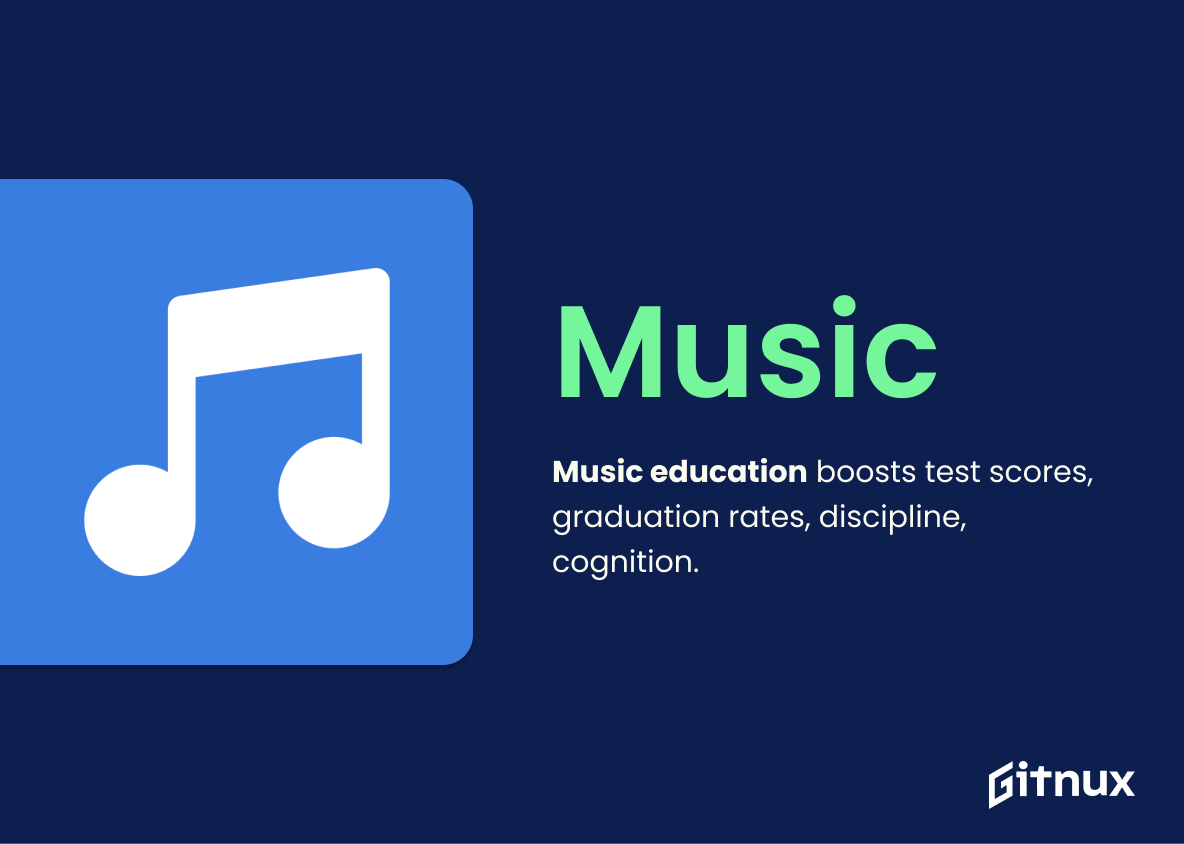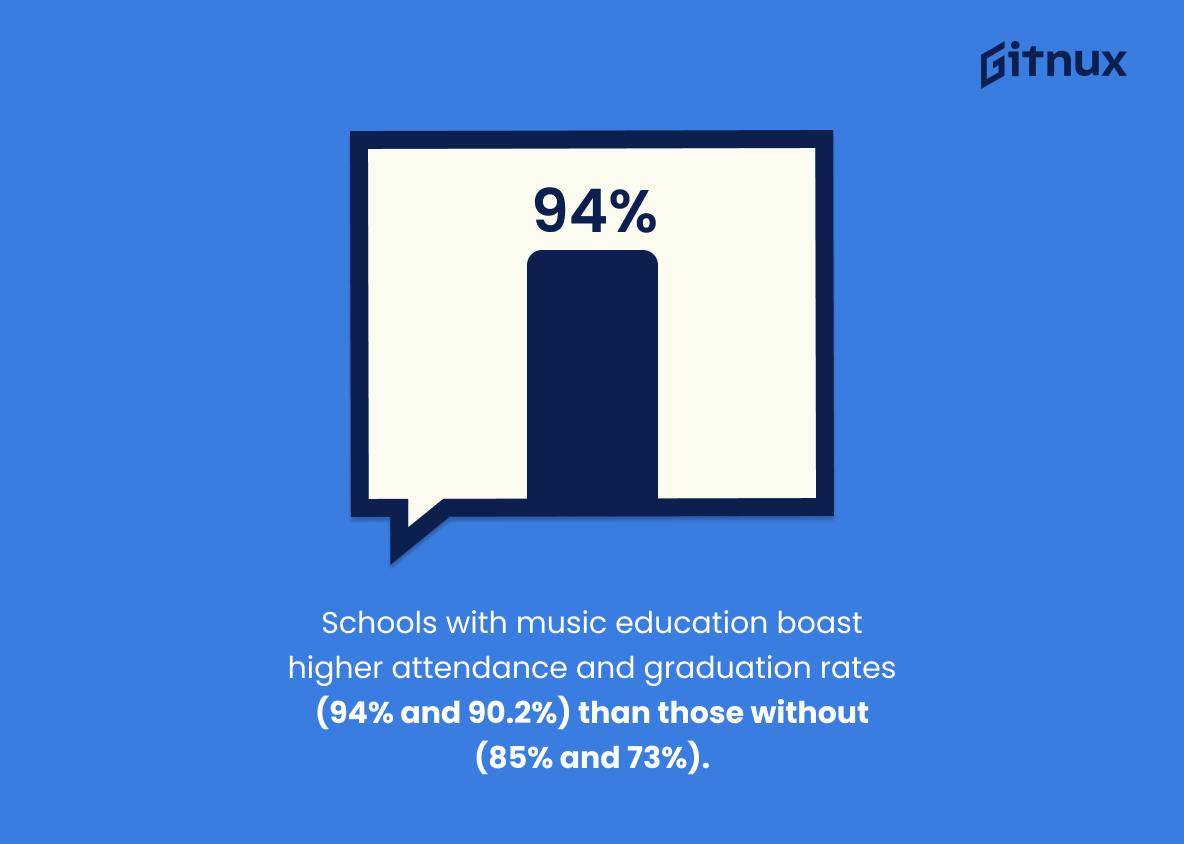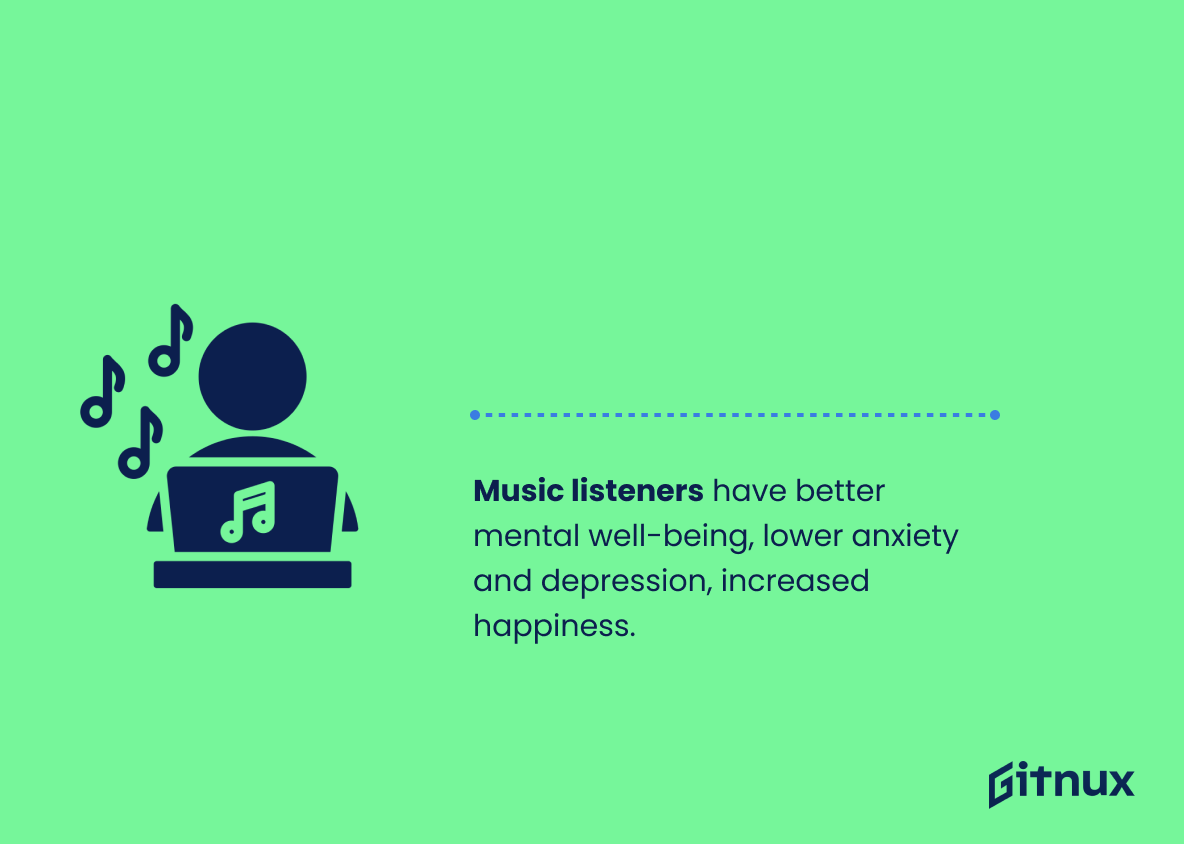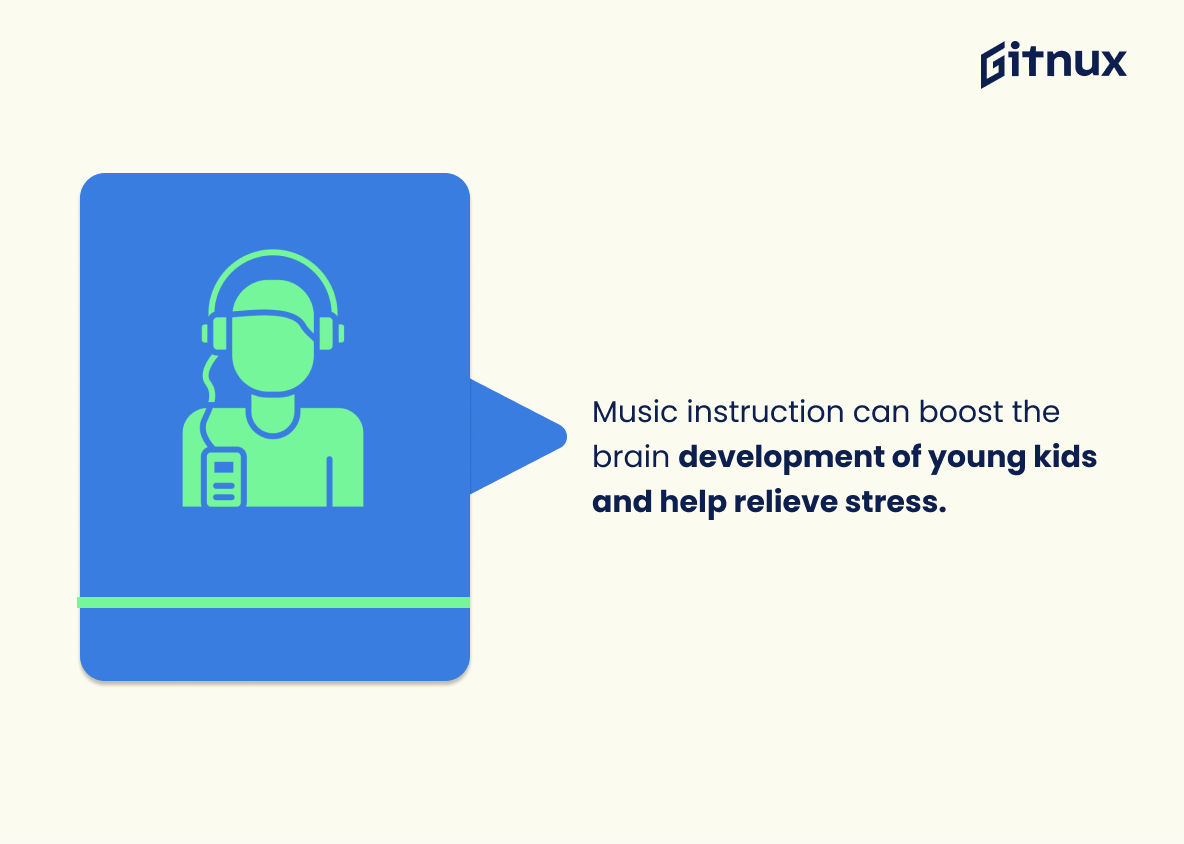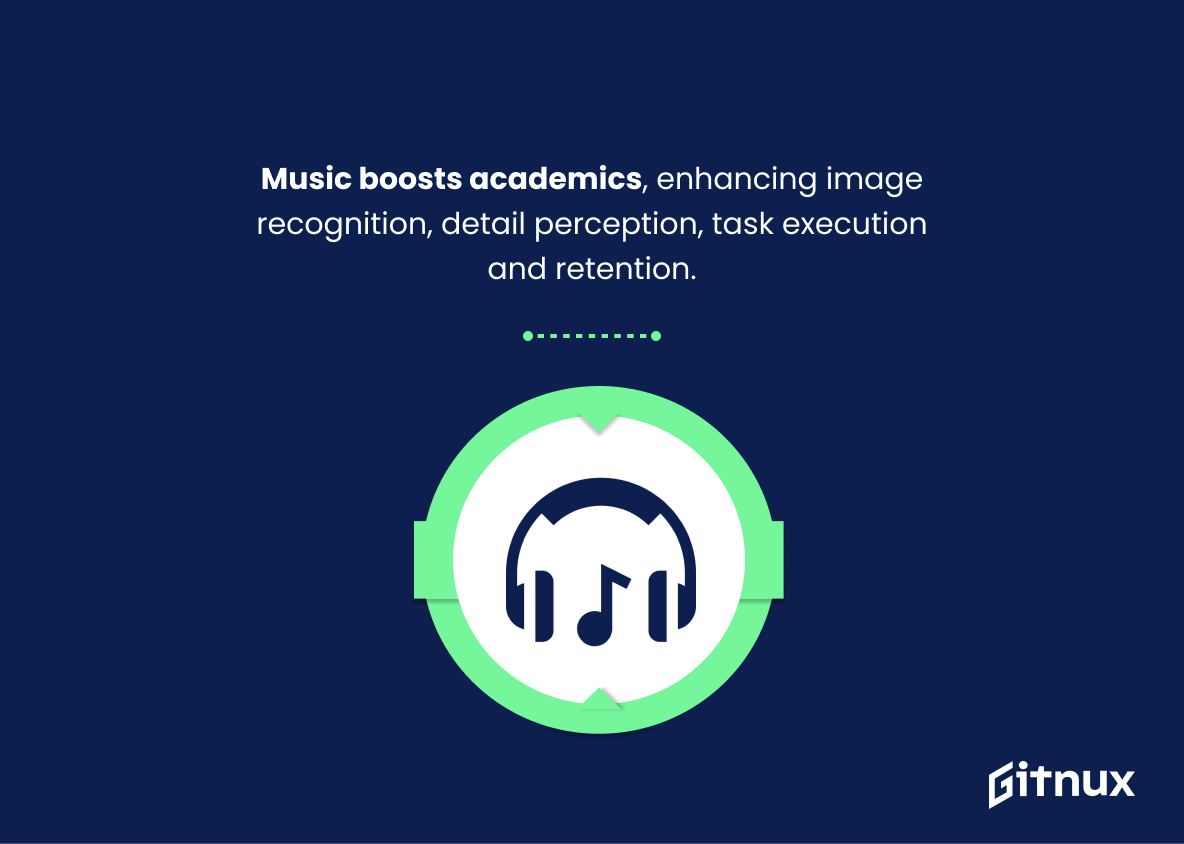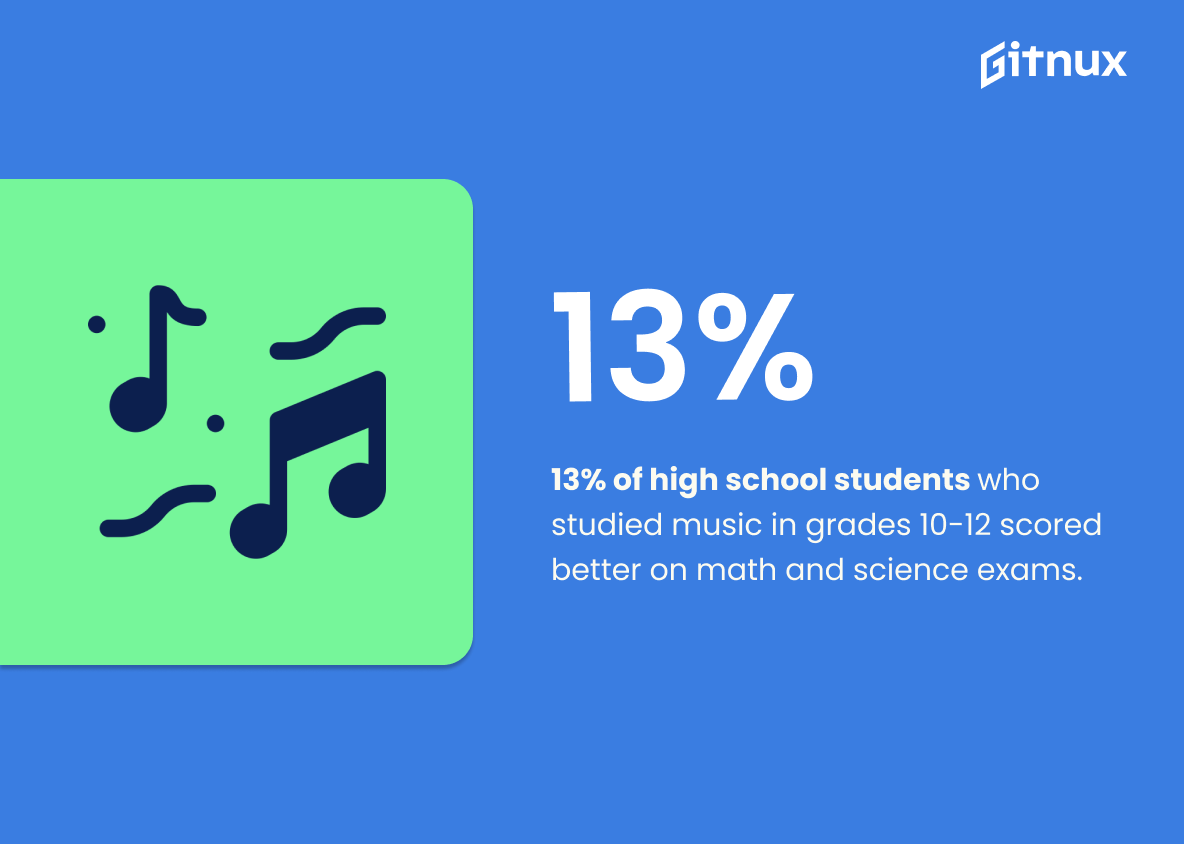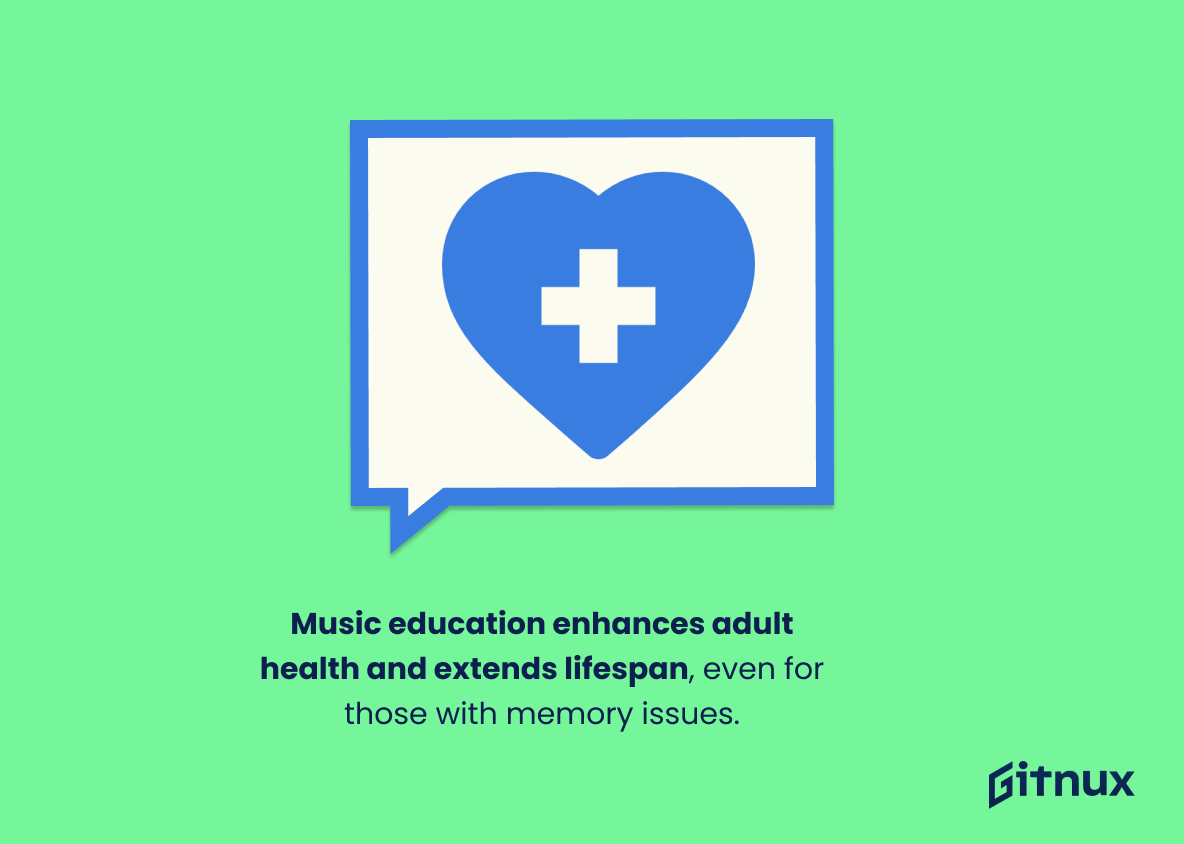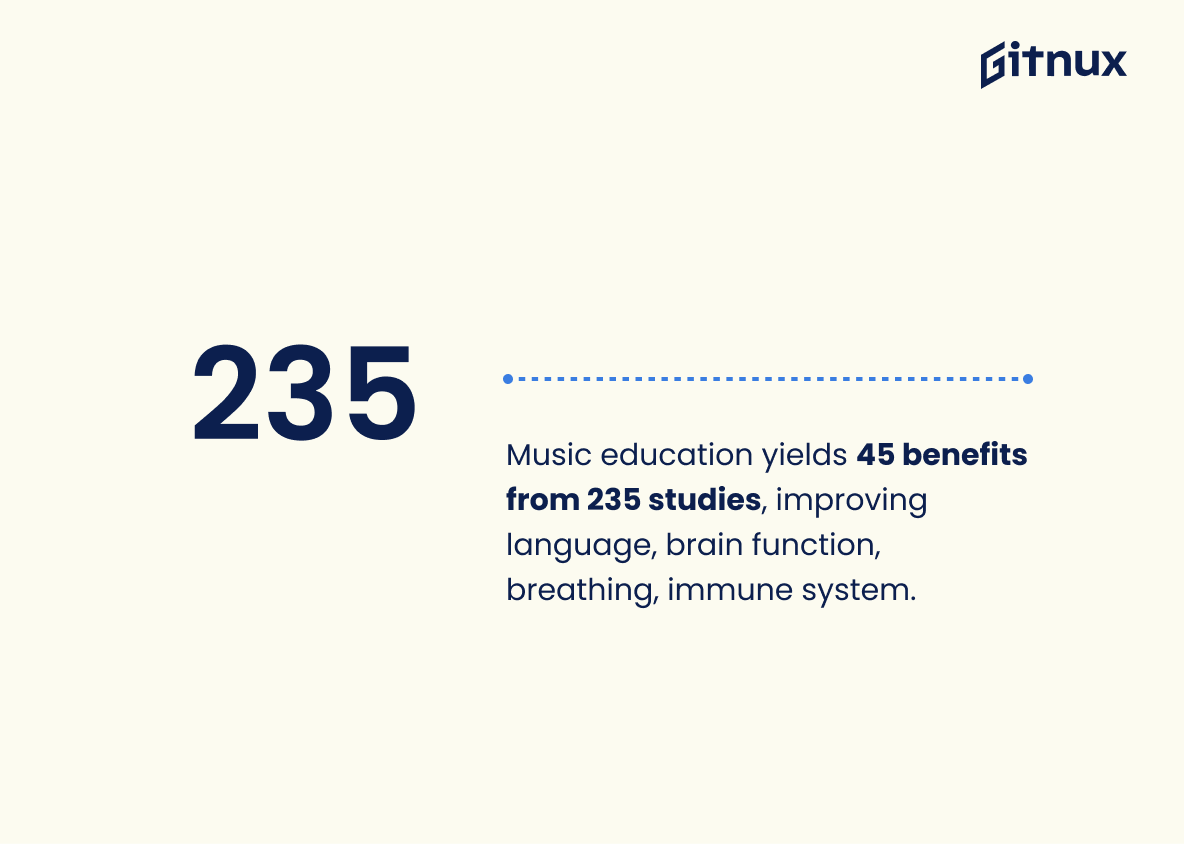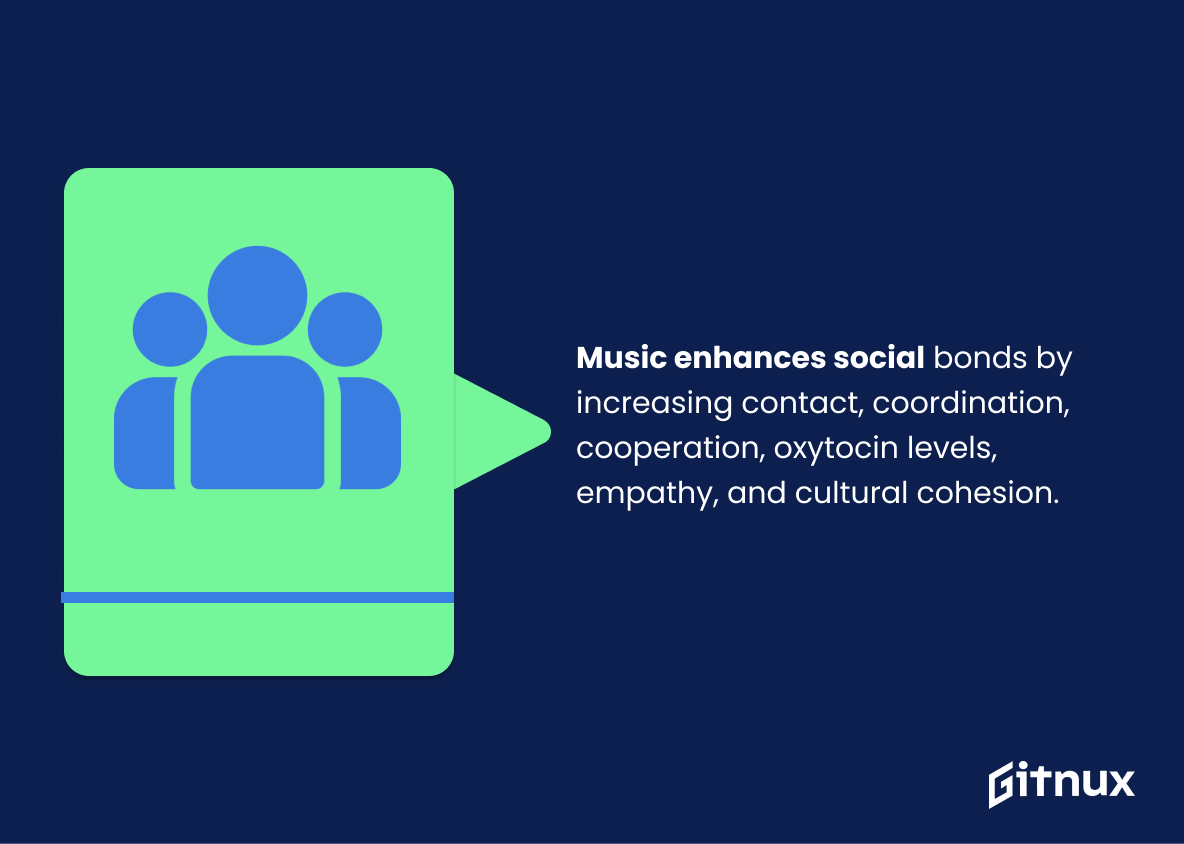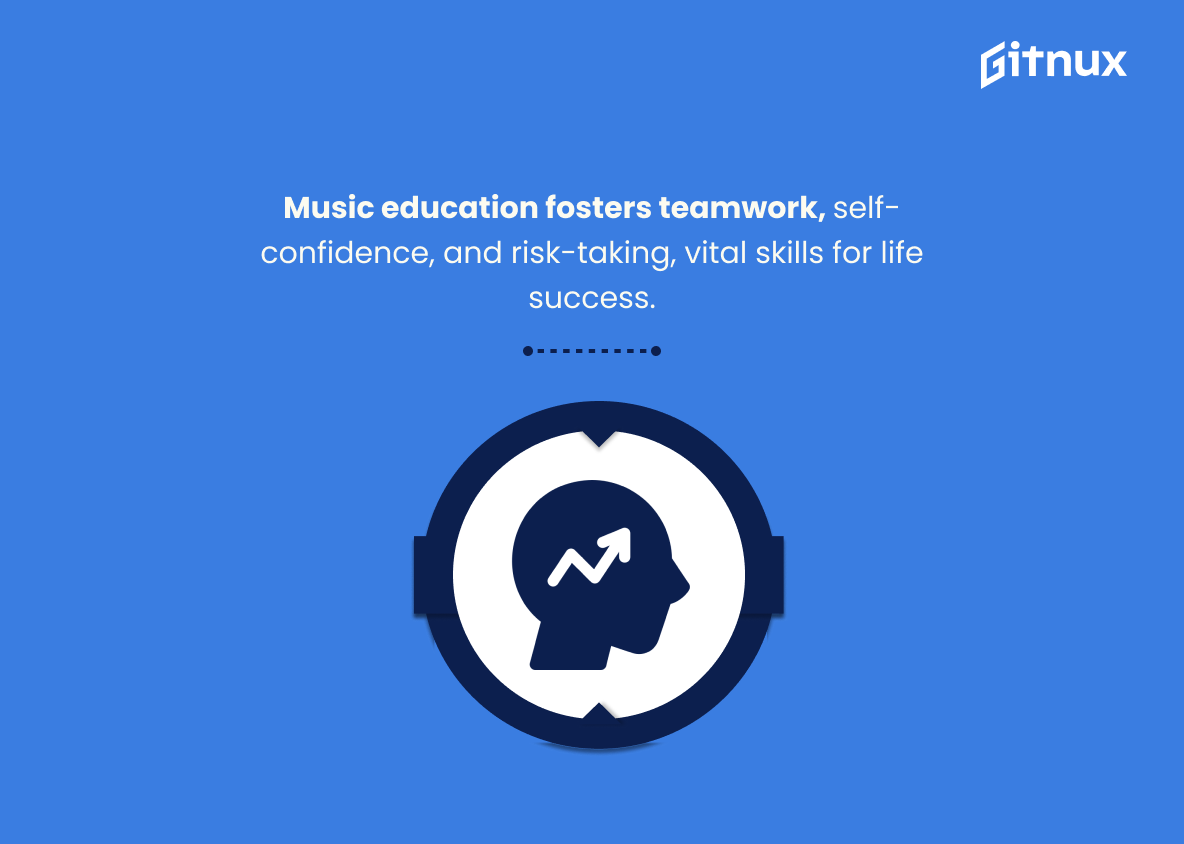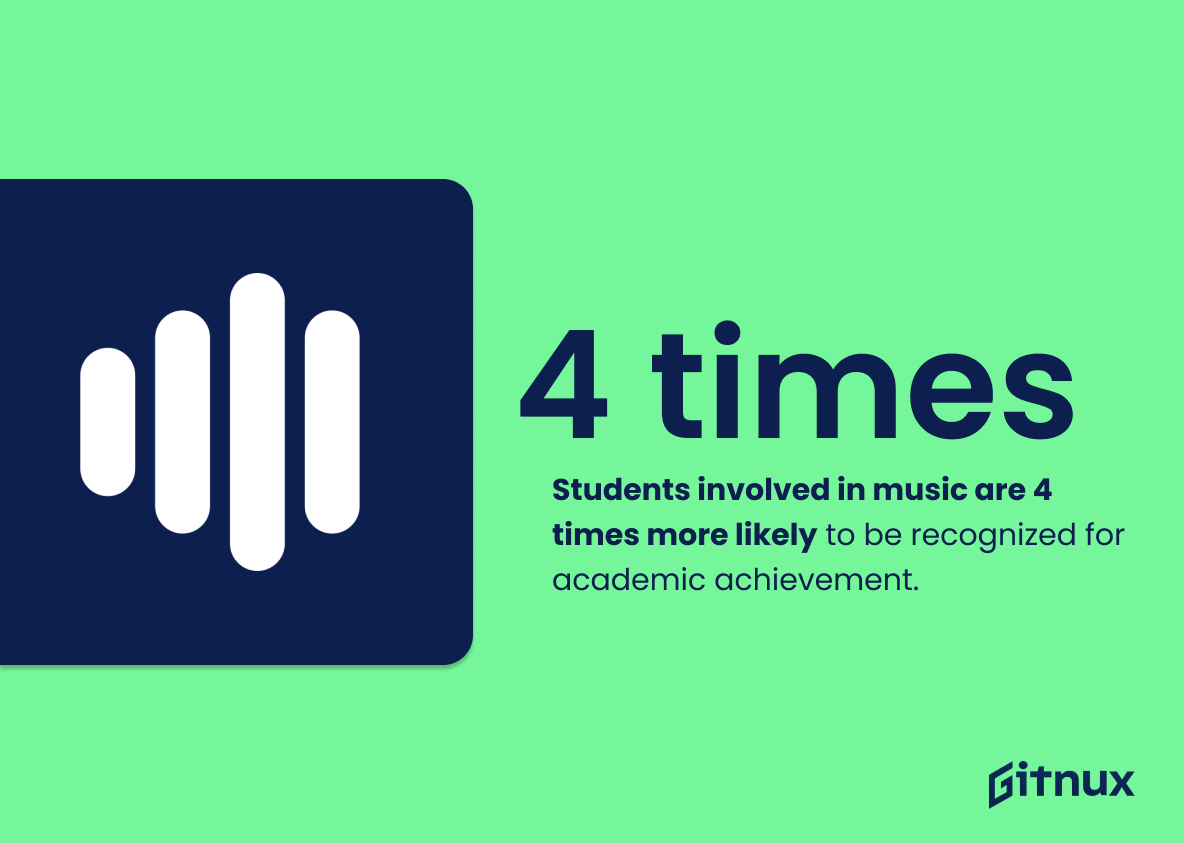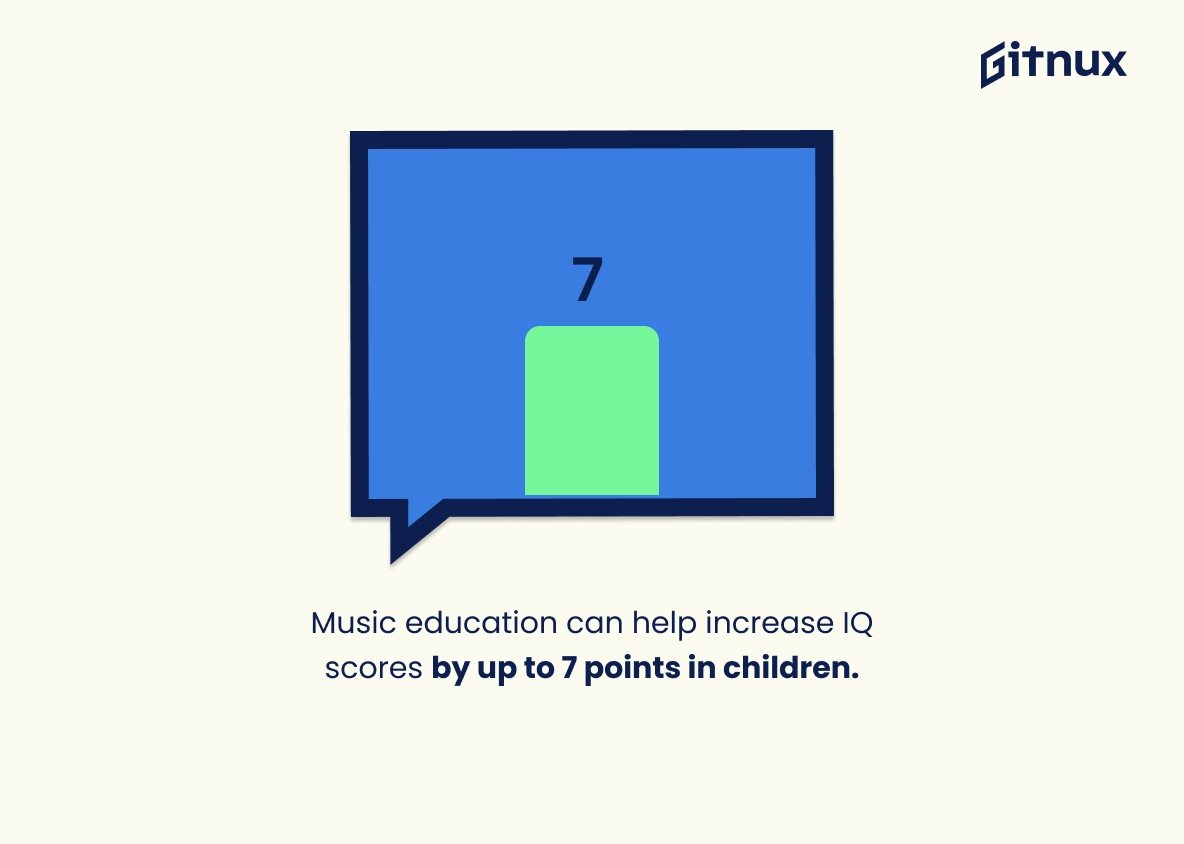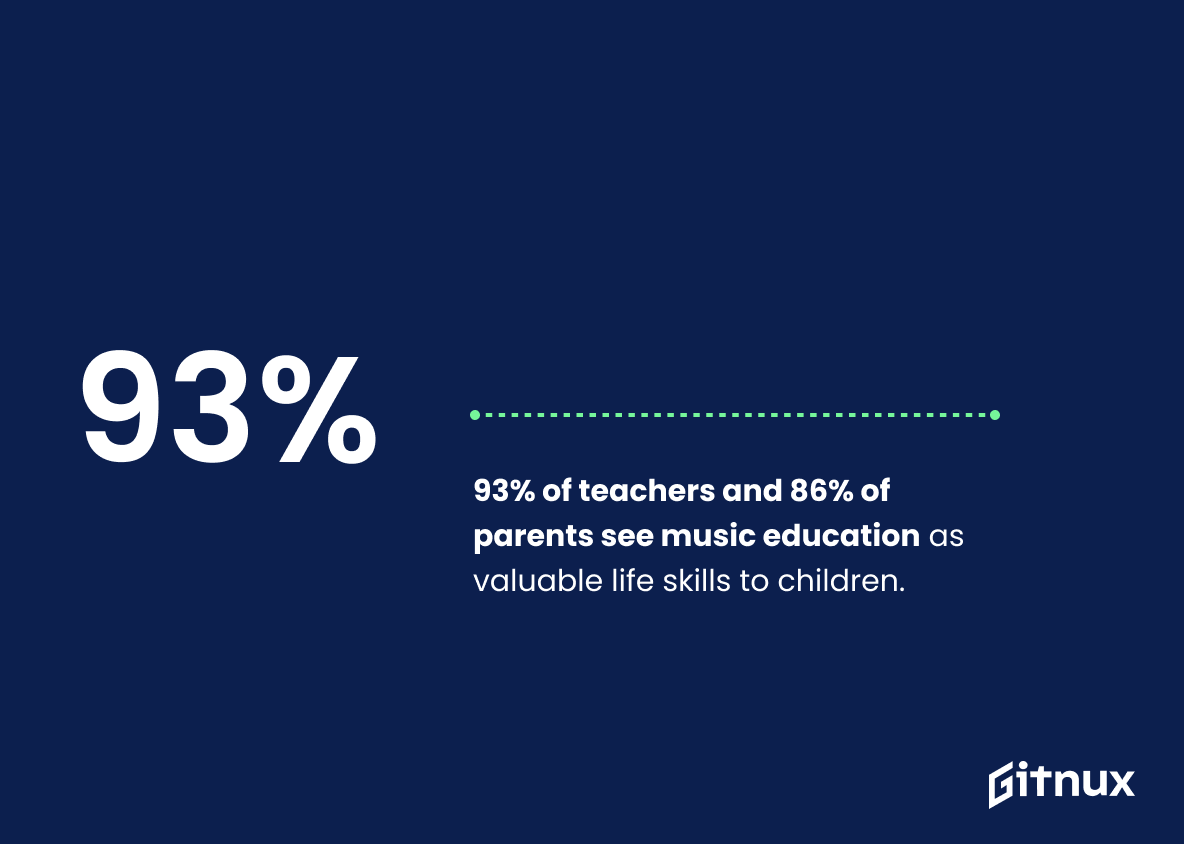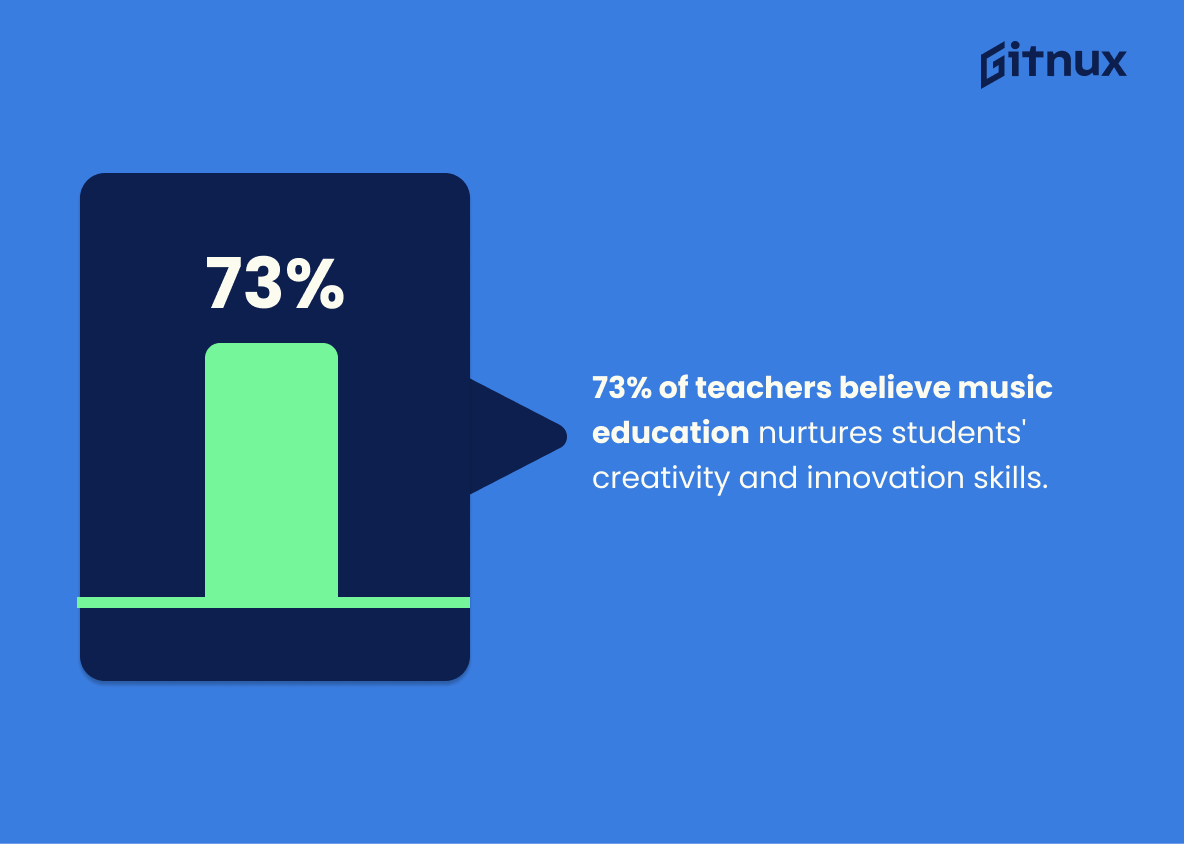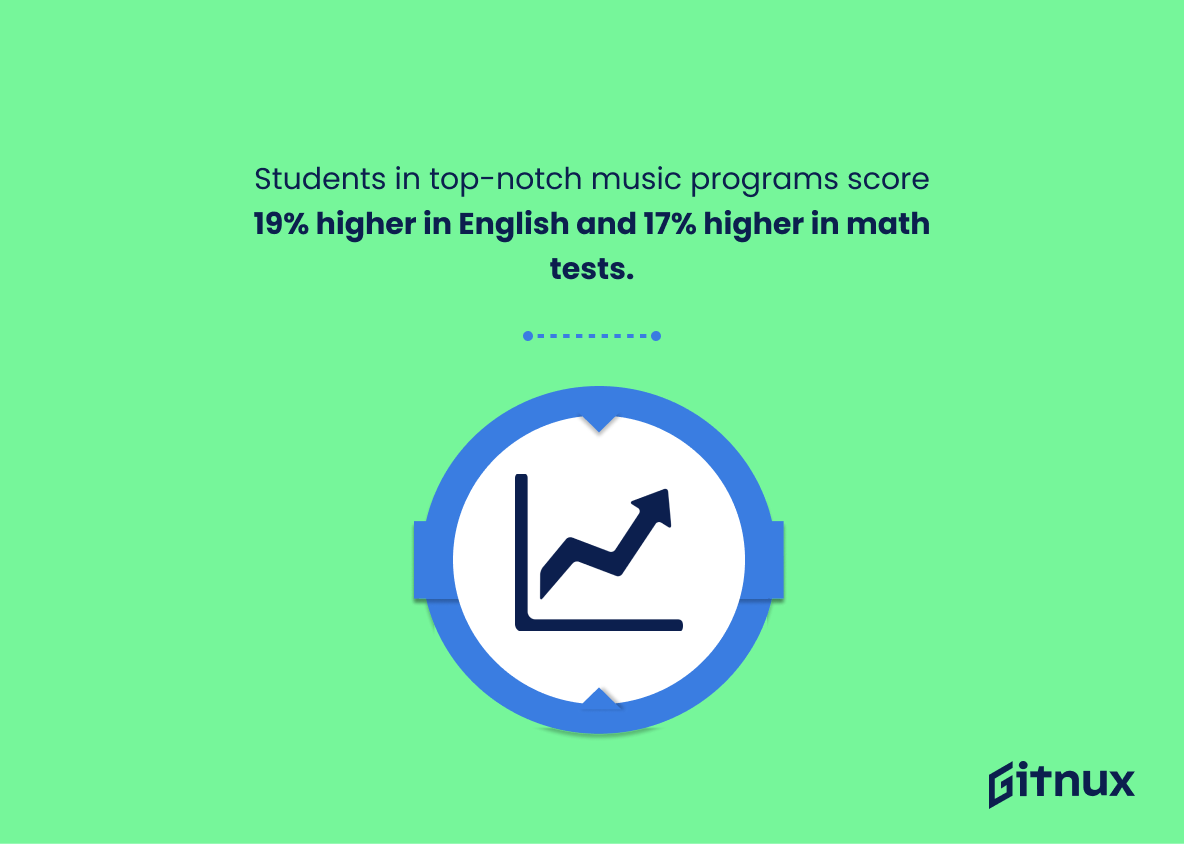Music education has long been recognized as an important part of a child’s education. It has been proven to have a positive impact on academic performance, social development, and even physical health. But what are the exact benefits of music education?
In this article, we’ll take a look at some of the most interesting music education statistics and explore the many benefits of music education. We’ll also discuss the importance of music education in today’s society and how it can help students reach their full potential. So let’s dive in and explore the many benefits of music education.
Benefits Of Music Education: Most Important Statistics
13% of high schoolers who took music courses in grades 10, 11, or 12 scored significantly better on exams in math and science than their nonmusical peers.
Music education has been linked to improvements in language, brain function, mood, exercise, breathing, immune system, anxiety, and heart health – a total of 45 distinct benefits identified from 235 studies.
Benefits Of Music Education: Statistics Overview
Music education is important as it has been linked to better test scores, higher graduation rates, fewer discipline issues, greater cognitive benefits, and improved ability to accept constructive criticism.
Music education is beneficial and should not be one of the first programs to be cut.
Schools that offer music education have a significantly higher attendance and graduation rate than schools that don’t, with 94% attendance and 90.2% graduation rate compared to 85% attendance and 73% graduation rate respectively.
Music education is beneficial for students, as it encourages them to attend school and stay in school until graduation.
Music listeners had higher scores for mental well-being, reduced levels of anxiety and depression, and higher rates of happiness and good cognitive function compared to people overall.
Music has a positive impact on mental and emotional well-being, which can be beneficial for people of all ages. This suggests that music education can be beneficial for students, as it can help them develop better mental and emotional health.
Music instruction can boost the brain development of young kids and help relieve stress, which is important for students to be able to balance their academic achievement and extracurricular activities.
The study found that listening to music can have a positive impact on student’s academic performance, including recognition of images, faces and fine details, visualization of objects from different angles, increases task execution excellence, builds retention abilities, and helps in memorization of extended information.
Music can be beneficial to students in terms of their academic performance, which can be used to support the argument that music education should be included in school curriculums.
13% of high schoolers who took music courses in grades 10, 11, or 12 scored significantly better on exams in math and science than their nonmusical peers.
Music education can have a positive impact on students’ academic performance in other subjects. This could be beneficial for schools and parents who are looking for ways to improve their students’ academic performance.
Music education benefits adults by improving their health and increasing their lifespan, even among those with memory problems.
Adults can also experience the positive effects of music education, not just children.
Music education has been linked to improvements in language, brain function, mood, exercise, breathing, immune system, anxiety, and heart health – a total of 45 distinct benefits identified from 235 studies.
This highlights the importance of music education in improving overall health and wellbeing.
Music has a powerful effect on social bonds, increasing contact, coordination, cooperation, oxytocin levels, empathy, and cultural cohesion.
Music education can have a positive impact on students’ social development, helping them to form strong relationships with their peers and develop a better understanding of different cultures.
Music education encourages teamwork, self-confidence, and risk-taking, which are important skills for success in life.
Music education can help to develop important skills that can be used in other areas of life. These skills are essential for success in many areas, such as work, school, and relationships. Music education can help to foster these skills and help students to become more successful in life.
Supplementary Statistics
Students involved in music are 4 times more likely to be recognized for academic achievement.
Students who are involved in music are more likely to be rewarded for their hard work and dedication to their studies. This is an important point to make in a blog post about the benefits of music education, as it demonstrates the tangible benefits that can be gained from engaging in music.
Music education can help increase IQ scores by up to 7 points in children.
It highlights the potential for music education to not only provide a creative outlet, but to also help children develop their intelligence and problem-solving skills. This is an important statistic to consider when discussing the benefits of music education, as it demonstrates the potential for music to be a valuable tool in helping children reach their full potential.
93% of teachers and 86% of parents believe that children learn valuable life skills through music education.
Both teachers and parents recognize the importance of music education in teaching children valuable life skills. This statistic is a strong argument for the importance of music education and its ability to help children develop important skills that will benefit them throughout their lives.
73% of teachers say music education helps students develop their creativity and innovation skills.
Thus, the majority of teachers recognize the value of music education in helping students develop these important skills. This statistic is an important piece of evidence that can be used to support the argument that music education is beneficial for students.
Students in high-quality music education programs score 19% higher in English tests and 17% higher in math tests.
Students who participate in high-quality music education programs are more likely to excel in English and math tests, indicating that music education can be a valuable tool for improving academic achievement. This is an important point to consider when discussing the benefits of music education, as it demonstrates that music education can have a tangible, positive effect on academic success.
89% of people believe that music education builds teamwork, communication, and collaboration skills.
A vast majority of people recognize the value of music education in fostering teamwork, communication, and collaboration. This statistic is especially pertinent to a blog post about the benefits of music education, as it provides evidence that music education can have a positive effect on developing these important skills.
Students in lower socioeconomic communities with music education scored 9% higher on standardized math tests.
Music education can be a valuable tool in helping these students to excel in math, a subject that is often seen as a key indicator of academic success. This statistic is a reminder that music education should not be overlooked as a valuable resource for students from all backgrounds.
Children involved in music education have 30% better auditory discrimination.
This improved auditory discrimination can help children better understand language, recognize environmental sounds, and even improve their academic performance. Therefore, this statistic is an important reminder of the many benefits of music education for children.
99% of school principals believe that music education helps develop better citizenship in students.
School principals, who are in a position to observe the effects of music education on their students, overwhelmingly recognize the benefits of music education in fostering better citizenship. This statistic is a strong indication that music education can be a valuable tool in helping students become more responsible and engaged citizens.
Music education leads to a 20% increase in verbal recall ability among students.
It demonstrates that music education can not only be a source of enjoyment, but also a tool to help students develop their verbal recall ability. This is an important point to consider when discussing the benefits of music education, as it highlights the potential for music to be used as an educational tool.
Music education helps reduce anxiety levels by 50% in students dealing with test anxiety.
Thus, music education can be a powerful tool in helping students manage their anxiety levels and perform better in tests. This statistic is an important reminder of the importance of music education and its potential to help students succeed.
83% of people believe that music education facilitates communication across cultures and languages.
This speaks to the potential of music to bring people together, regardless of their background, and to foster understanding and appreciation of different cultures. This is an important point to make in a blog post about the benefits of music education, as it highlights the potential of music to create a more unified and harmonious world.
Conclusion
Music education has been proven to have a positive impact on students’ academic, social, and emotional development. The statistics show that students who receive music education have higher test scores, better attendance, and improved behavior.
Music education also helps to foster creativity, collaboration, and critical thinking skills. Music education can help to create a more positive learning environment and can help students to develop a lifelong appreciation for music. With all of these benefits, it is clear that music education is an invaluable part of a student’s education.
References
985thesportshub.com/2019/08/14/music-education-statistics/
onestop.io/benefits-of-music-education-statistics/
health.harvard.edu/blog/why-is-music-good-for-the-brain-2020100721062
onestop.io/benefits-of-music-education-statistics/
researchgate.net/publication/341342612_Music_and_Academic_Performance_Impact_of_Listening_to_Music_of_Filipino_Millennials
apa.org/news/press/releases/2019/06/music-students-score-better
thevault.musicarts.com/what-are-the-benefits-of-music-education-and-music-lessons/
starsandcatz.com/learn/music/benefits/
greatergood.berkeley.edu/article/item/four_ways_music_strengthens_social_bonds
music.allpurposeguru.com/2017/10/social-benefits-music-education/
www.classicfm.com
www.sfcv.org
micwrecka.bandcamp.com
www.pbs.org
www.yamaha.com
